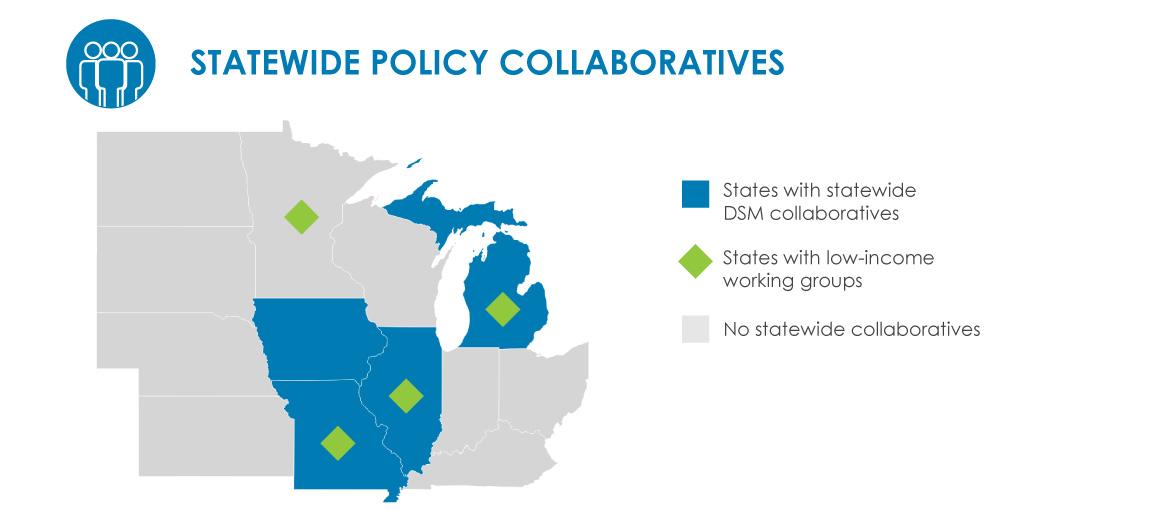
Policies designed to drive energy savings vary across the Midwest. Some states use mandatory savings requirements while others utilize long range planning processes. Regardless of the directives to utilities, it is apparent that an active statewide policy collaborative can foster transparency and improve program design. Stakeholder collaboratives can bring together utilities, implementers, evaluators, regulatory staff, consumer advocates, community leaders and other interested parties. Collaboratives facilitate information sharing and consensus-building, which may reduce the number of contested issues in regulatory commission proceedings.
Illinois has a long-running statewide collaborative with a website that facilitates public participation. The collaborative has working groups on market transformation program design and the measurement of non-energy impacts.
Both Illinois’ and Michigan’s collaboratives hold monthly meetings that allow for continued dialogue and regular updating of EE program resources. The Missouri PSC staff convene quarterly collaborative meetings with agendas jointly developed by stakeholders. Iowa’s utilities convene an annual collaborative meeting to address stakeholders’ questions on program reports, while individual utilities may convene quarterly working groups on program design.
Four states, Illinois, Michigan, Minnesota and Missouri, have working groups that aim to improve the design and delivery of programs for low-income customers. The groups vary in structure but present an opportunity for increased collaboration across the energy, health and housing sectors. This collaboration can address issues of energy affordability, healthy housing and racial disparities. They present opportunities for utilities and program administrators to receive guidance from the under-resourced communities that these programs are being designed for.